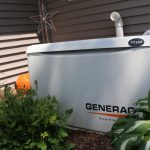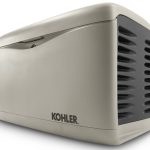Your heating, ventilation, and air conditioning (HVAC) system is one of the essential systems in your home. It is the system that ensures the temperature within your home is comfortable and also helps with maintaining good indoor air quality. Every home has its HVAC system, yet not every homeowner pays attention to scheduling regular maintenance for this system. There are many benefits to regularly maintaining your HVAC system, and we will discuss them below.
The best way to maintain your HVAC system is to be proactive. Consequently, it is vital to have a regular maintenance schedule for HVAC systems to prevent breakdowns. This is what the annual maintenance is all about. This article details everything you need to know about the yearly maintenance of your HVAC system.
Why is Getting Yearly HVAC System Maintenance Necessary?
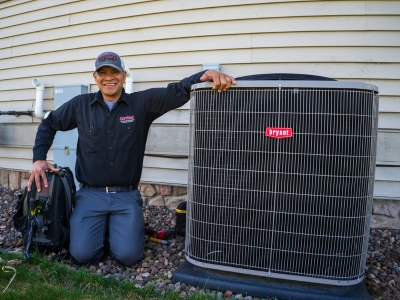 It is necessary to get yearly maintenance for your HVAC system to prevent the system's sudden breakdown. Your HVAC system is made up of different machines, and machines do have faults. However, by scheduling regular maintenance, you can fix many defects before they become issues that permanently damage the system. Regular maintenance allows you to keep your heating and air conditioning working for all seasons and at all times.
It is necessary to get yearly maintenance for your HVAC system to prevent the system's sudden breakdown. Your HVAC system is made up of different machines, and machines do have faults. However, by scheduling regular maintenance, you can fix many defects before they become issues that permanently damage the system. Regular maintenance allows you to keep your heating and air conditioning working for all seasons and at all times.
Are There Any Added Benefits to HVAC Maintenance?
Yes, there are several added benefits to HVAC maintenance. They include:
1. Improved Lifespan
Maintenance ensures your HVAC system lasts longer. When your air conditioners and heaters are kept at optimal working conditions, there is less strain on them, which preserves their lifespan. However, using them without proper maintenance quickly wears them out.
2. Safety For You and Your Household
Sometimes, the breakdown of an HVAC system can cause severe dangers to life and property. Your HVAC system can release poisonous gases, or explosions can occur. Therefore, regular maintenance is an excellent safeguard for your life and your family.
3. Reduced Energy Bills
Your HVAC system saves money when working efficiently. One of the best ways to keep it efficient is regular maintenance. Otherwise, it would have to use more energy to deliver a comfortable temperature for your home, thereby causing you to pay more bills.
4. Less Money Spent On Repairs
The very best HVAC system will still need repairs from time to time. However, annual maintenance ensures you have fewer repairs to make because you would have spotted dangers early.
5. Excellent Air Quality
A properly functioning HVAC system will deliver more outstanding air quality for you and your household than one that is not well-maintained.
What Do the Technicians Do When Inspecting an Air Conditioner or Furnace?
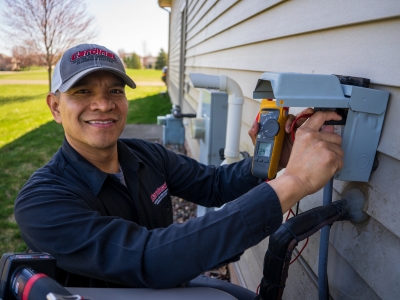 When you contract a technician to come and inspect your home's HVAC system, you can expect them to take time to assess important aspects of your HVAC system to determine whether it is still functioning efficiently. Their exact tasks will differ depending on the systems you have installed in your home. However, some of the significant things that a qualified technician will do during an inspection include:
When you contract a technician to come and inspect your home's HVAC system, you can expect them to take time to assess important aspects of your HVAC system to determine whether it is still functioning efficiently. Their exact tasks will differ depending on the systems you have installed in your home. However, some of the significant things that a qualified technician will do during an inspection include:
- Inspect and change your air filters.
- Confirm that your installations are appropriately done.
- Seal any leaks in your system
- Ensure that electrical connections are all in good shape.
- Check airflow and pressure within the HVAC system for any leakages
- Lubricate the moving parts of the system
- Confirm that all safety regulators are working
- Clean and check condenser units
- Ensure that the thermostat is calibrated correctly.
- Inspect the air blower/handler for corrosion or any other need for change.
Essentially, a technician checks your system to ensure nothing needs to be changed or fixed and that everything is working as it should be.
What Can I Do as a Homeowner to Help My Systems Work More Efficiently?
Apart from scheduling regular maintenance for your HVAC system, there are a couple of other things you can do as a homeowner to ensure your HVAC system performs at its best. Some of them include:
Change Your Filters
Filters are the protectors of your HVAC system. They help prevent impurities and pollutants from getting into the system and clogging up some of its internal workings. Furthermore, they also help guarantee clean air. If you want your HVAC system to function efficiently, ensure it always has a clean and working filter.
Perform Regular Visual Inspection
Take time to inspect the aspects of your HVAC that you can easily see. Watch for faults and flaws, so you can quickly get professional help before they escalate. Some things to watch out for include the following:
- The battery on the thermostat
- Signs of mold
- Cabinet door and filter access
Vacuum Indoor Vents
You can help airflow by vacuuming debris and dust away from indoor vents. It will also help to ensure items like furniture and toys don't block these vents.
Monitor Your Energy Bills
This is a great way to spot something wrong with your HVAC system. If you notice a sudden increase in your energy usage, there are chances something is wrong. A gradual increase in energy consumption may be a sign of reduced efficiency.
Get a Carbon Monoxide Detector
Carbon monoxide is a hazardous odorless gas that could leak from your HVAC system. Having a detector helps you test its levels in the house and spot a leak if one occurs.
Remove Clutter From Around Your HVAC Unit
Ensure the environment around your HVAC unit is clean and not filled up with different items that will affect the air that gets into the vent system.
Why Should I Consider Joining My Favorite HVAC Company’s Maintenance Plan?
 For many reasons, joining a maintenance plan for your favorite HVAC company is one of the best decisions you can make. Some of these reasons are highlighted below.
For many reasons, joining a maintenance plan for your favorite HVAC company is one of the best decisions you can make. Some of these reasons are highlighted below.
1. Priority Service
Most maintenance plans include priority service, allowing you to schedule appointments quickly and conveniently. This also means you will be prioritized whenever you have an emergency.
2. Peace of Mind
You will enjoy your HVAC system, knowing that the best hands regularly maintain it.
3. Financial Savings
There are usually many discounts on repairs and equipment that will help you save money in the long run. Furthermore, most companies offer maintenance plans that guarantee your HVAC system will be checked regularly enough so that you need not fear a sudden breakdown that may be costly.
What Other Home Systems Should Get Regular Maintenance?
Your HVAC system is essential and should get regular maintenance. However, it shouldn't be the only system in your house that gets regular maintenance. Other vital systems that should get regular maintenance include:
- Plumbing System
- Electrical system
- Chimney system
What Things Can I Do as a Homeowner to Help These Other Systems Perform Better?
To help any of the systems above perform better, you must be willing to maintain them regularly. Here are a couple of things you could do that will ensure these systems perform optimally and your home is well-maintained:
- Inspect for any leaks in the sink or toilets
- Check for cracks in tubs or showers and fill them up
- Get smoke and carbon monoxide detectors
- Inspect your roofs, although it is best you use binoculars rather than go up there without being a professional
- Clean up gutters and septic tanks
- Ensure fire extinguishers are working.
- Inspect refrigerator coils.
- Inspect attic spaces for signs of moisture.
Best Annual Residential HVAC Maintenance: About Cardinal Heating & Air Conditioning
Cardinal Heating and Air Conditioning have proudly served Sun Prairie, WI, and its surrounding areas for over 39 years. They offer several services, including annual residential HVAC maintenance. They also offer a maintenance plan so that you can join to enjoy special discounts and priority services from their team of experts. Over the years, customers have received honest advice, professional services, and fast response time from this firm.
Do you need well-trained, experienced technicians to inspect your HVAC system in Sun Prairie and its surrounding counties? Contact Cardinal Heating and Air Conditioning today.
Distribution Links +
- htv10.tv
- wicz.com
- snntv.com
- central.newschannelnebraska.com
- metro.newschannelnebraska.com
- midplains.newschannelnebraska.com
- northeast.newschannelnebraska.com
- plattevalley.newschannelnebraska.com
- panhandle.newschannelnebraska.com
- wpgxfox28.com
- lifestyle.3wzfm.com
- lifestyle.southernsportstoday.com
- lifestyle.thepodcastpark.com
- lifestyle.xtra1063.com
- lifestyle.953hlf.com
- lifestyle.rewind1019.com
- lifestyle.us983.com
- lifestyle.countrylegends1059.com
- lifestyle.967wshv.com
- lifestyle.1045thedan.com
- yournewsnet.com
- michigan.yournewsnet.com
- lifestyle.earl983.com
- lifestyle.magic979wtrg.com
- lifestyle.mykmlk.com
- wtnzfox43.com
- lifestyle.680thefan.com
- lifestyle.1077lakefm.com
- lifestyle.maverick1023.com
- https://smb.beauregardnews.com
- https://pr.hattiesburg.com
- https://pr.walnutcreekmagazine.com
- https://pr.thembnews.com
- https://pr.stylemg.com
- https://pr.bradfordvillebugle.com
- https://pr.boreal.org
- https://pr.timesofsandiego.com
- https://pr.chestercounty.com
- https://pr.wncbusiness.com
- https://pr.ashlandtownnews.com
- https://pr.millismedwaynews.com
- https://pr.norwoodtownnews.com
- https://pr.hopedaletownnews.com
- https://pr.franklintownnews.com
- https://pr.naticktownnews.com
- https://pr.norfolkwrenthamnews.com
- https://pr.omahamagazine.com
- https://pr.hollistontownnews.com
- https://pr.rivertonjournal.com
- https://pr.greenvillebusinessmag.com
- https://pr.davisjournal.com
- https://pr.columbiabusinessmonthly.com
- https://pr.herrimanjournal.com
- https://pr.holladayjournal.com
- https://pr.millcreekjournal.com
- https://pr.wvcjournal.com
- https://pr.mysugarhousejournal.com
- https://pr.westjordanjournal.com
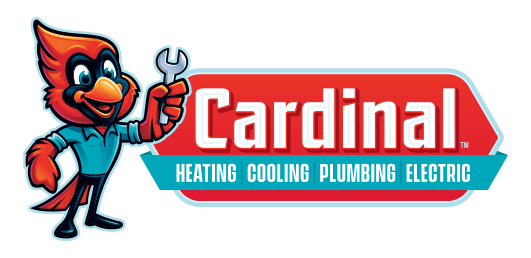



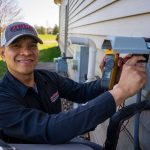


 The
The 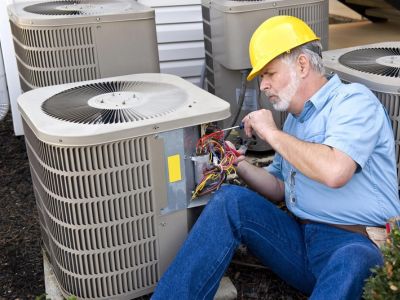 Problems with the HVAC system happen at the most inopportune times. That's why homeowners want to do everything possible to prevent unexpected breakdowns. In the long run, proper foresight helps prevent:
Problems with the HVAC system happen at the most inopportune times. That's why homeowners want to do everything possible to prevent unexpected breakdowns. In the long run, proper foresight helps prevent: 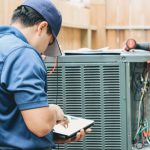


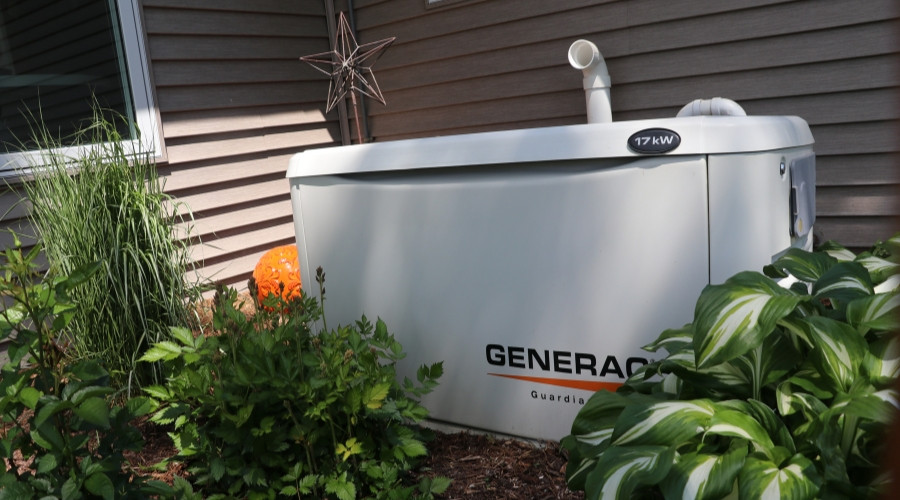
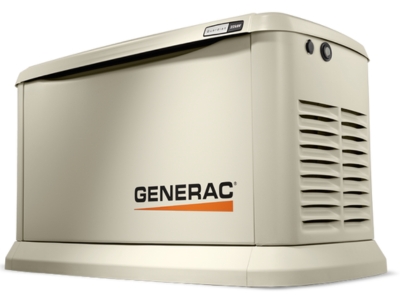 A stand-alone whole-home generator may also be called a
A stand-alone whole-home generator may also be called a 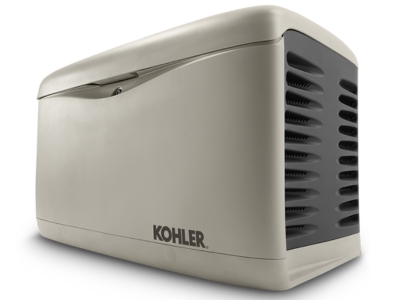 Natural gas is a mix of methane and other gases. An underground pipeline with natural gas powers your generator and is regulated and metered by the appropriate authorities. One of the major benefits of this fuel type is that there is no need to refuel. Other important benefits include the following:
Natural gas is a mix of methane and other gases. An underground pipeline with natural gas powers your generator and is regulated and metered by the appropriate authorities. One of the major benefits of this fuel type is that there is no need to refuel. Other important benefits include the following: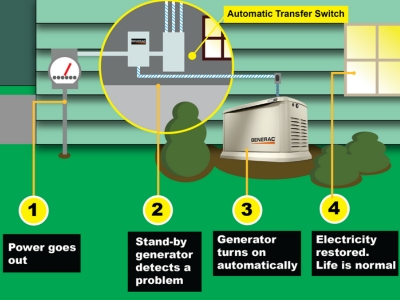 An automatic transfer involves switching power from the main supply to an alternative supply and back to the main supply when necessary. An automatic transfer is powered by an automatic transfer switch, which may work manually or automatically.
An automatic transfer involves switching power from the main supply to an alternative supply and back to the main supply when necessary. An automatic transfer is powered by an automatic transfer switch, which may work manually or automatically.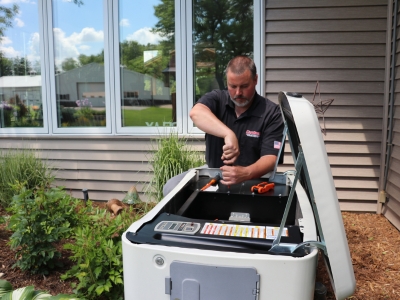 You don't need anything special to install a whole home generator. Indeed, once you get the right generator and have decided on the fuel type, installation may begin. In general, you should have a professional do the job for you. However, if you plan to do it yourself, here are some things you need to know:
You don't need anything special to install a whole home generator. Indeed, once you get the right generator and have decided on the fuel type, installation may begin. In general, you should have a professional do the job for you. However, if you plan to do it yourself, here are some things you need to know: